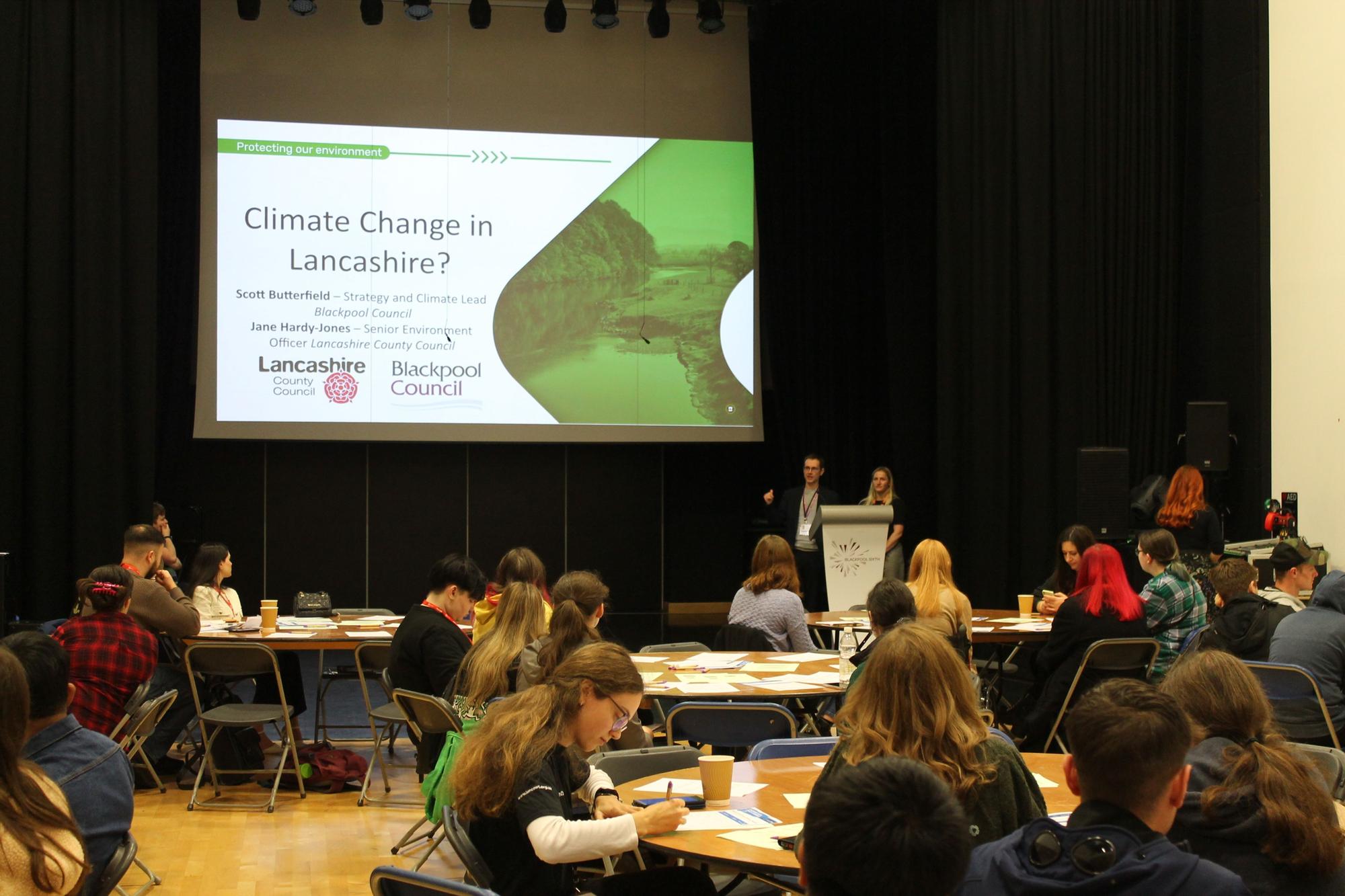A Legacy of Environmental Leadership
The Eco-Schools programme, which was launched in 1994, has been a beacon of inspiration for young environmentalists across the globe. Over the past three decades, it has evolved into a powerful movement that encourages schools to adopt sustainable practices and foster a deeper connection with the natural world. The programme’s Green Flag accreditation is now a symbol of excellence, awarded to educational institutions in over 100 countries. In England, the initiative reaches more than one million students annually, offering them the tools and opportunities to make meaningful contributions to the health of our planet.
Blackpool Sixth: A Model of Sustainability
Blackpool Sixth has been an active participant in the Eco-Schools programme since 2024, and their efforts have already made a significant impact. The college has planted over 1,000 trees, grown its own vegetables, and implemented strategies to reduce its carbon footprint and eliminate single-use plastics. These achievements reflect a commitment to sustainability that goes beyond mere compliance—it’s a culture of responsibility and innovation.
This year, the college took its environmental initiatives even further by focusing on three key themes: biodiversity, marine conservation, and healthy living. Through a comprehensive year-long action plan, students and staff collaborated to create a series of impactful projects. One notable achievement was the development of a new wildlife area filled with wildflowers and native trees, providing a habitat for local wildlife. They also launched a ‘Cut Your Carbon’ campaign to raise awareness about reducing emissions within the college community. Additionally, they organised an oceans-themed week that included an art competition for primary schools, encouraging younger students to engage with marine conservation in a fun and creative way.
Empowering Young Voices
The college’s Eco Committee played a crucial role in these efforts, including the organisation of the first-ever Lancashire Youth Climate Conference in October 2024. This event brought together students from across the region to discuss climate challenges and share ideas for sustainable solutions. It was a testament to the power of youth leadership and collective action.
Jon McLeod, a staff member and Eco Schools Coordinator at the college, praised the dedication of students and staff involved in the programme. He said, “Students and staff in our Eco Committee and our Eco Action enrichment group have worked so hard on so many different projects. It’s great to see their work acknowledged by this Green Flag with Distinction award. We believe it’s more and more important that young people are given the opportunity to have a positive impact on the environment. They learn a lot from this work about how to plan and bring about change to the benefit of all. This experience also helps them hugely in their future studies and careers.”
Student Perspectives
Ena Downes, a student and member of the Eco Action group, shared her positive experiences. She said, “I’ve really enjoyed the gardening work we’ve done, making new friends and having a laugh when we do it, such as that day we watered the trees and I got absolutely soaked with a hosepipe. I also liked dressing up as a shark for Love Our Oceans Week and being able to creatively input my ideas and having fun whilst doing it.”
Recognition and Future Goals
Adam Flint, the Eco-Schools England Manager, highlighted the importance of the students’ efforts. He said, “Every year, we are amazed by the incredible efforts of young people working together to create a better future for all. Their collective impact is truly remarkable. If everyone approached the climate crisis with the same level of passion and determination, we could resolve it much faster and make it a problem of the past. At Keep Britain Tidy, we are delighted to recognise their achievements with the Eco-Schools Green Flag.”
As the Eco-Schools programme continues to grow, it remains a vital platform for empowering the next generation of environmental leaders. Through education, creativity, and collaboration, students like those at Blackpool Sixth are proving that small actions can lead to big changes.







